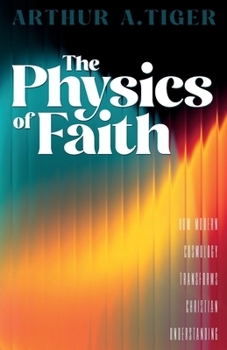The Physics of Faith: How Modern Cosmology Transforms Christian Understanding
The universe is 13.8 billion years old, contains two trillion galaxies, and is heading toward heat death. How can Christians maintain faith in divine purpose within such cosmic immensity and apparent indifference?
"The Physics of Faith" offers an honest, profound exploration of the dialogue between modern cosmology and Christian belief. Rather than forcing easy harmonization or accepting inevitable conflict, this book dwells thoughtfully in the creative tension between scientific discovery and religious faith.
Drawing on cutting-edge physics and classical theology, the author examines:
How spacetime and relativity complicate our understanding of prayer and divine eternityWhy quantum mechanics neither proves nor disproves God, despite popular claimsThe genuine challenge that evolutionary suffering poses to belief in a good CreatorHow fine-tuning might point to design-or to multiple universesWhat dark matter and dark energy reveal about the limits of our knowledgeWhy the heat death of the universe challenges Christian hope for new creationThrough lyrical prose that moves between scientific precision and spiritual reflection, this book speaks to three audiences: scientists who maintain faith despite professional pressures, young Christians encountering cosmology for the first time, and thoughtful believers seeking honest engagement with modern physics.
Unlike books that claim science proves God or that faith requires rejecting evolution, "The Physics of Faith" respects both domains while acknowledging real tensions. It includes candid testimonies from working scientists about their struggles to integrate research with faith, a survey of different approaches to science-religion dialogue, and resources for continued exploration.
This is not a book of easy answers but of profound questions: Can prayer make sense in a block universe? How does God act in nature without violating physical laws? What does human significance mean at cosmic scales? How do we maintain hope when physics predicts cosmic death?
Perfect for book clubs, adult education classes, and individual seekers, "The Physics of Faith" offers a mature, nuanced approach to one of our era's most important conversations. It will challenge believers to take science seriously and scientists to remain open to transcendence, while equipping both for honest dialogue.
Written for those who refuse to choose between telescope and scripture, between laboratory and sanctuary, this book models intellectual courage and spiritual depth in exploring how the God of faith might relate to the cosmos of modern science.





